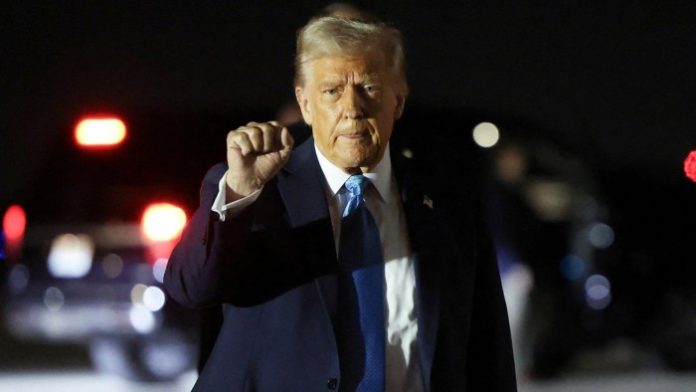Business groups and some members of the Republican party criticized Donald Trump after he initiated a trade war by imposing steep tariffs on the US’s top trading partners.
Various trade associations representing different sectors, such as consumer goods, oil, groceries, and automakers, expressed concerns that Trump’s tariffs would drive up prices for consumers and disrupt supply chains.
The US Chamber of Commerce’s senior vice-president, John Murphy, stated that while addressing issues like border security and drug problems is important, tariffs will not solve these issues and will only increase costs for American families.
Consumer product groups warned of more expensive groceries, while automakers voiced concerns over higher production costs for vehicles in the US due to the tariffs.
Experts like Kim Clausing from the Peterson Institute highlighted that the tariffs would result in a significant tax increase, disrupting the North American free trade that has been in place for years.
Following Trump’s move, Canada and Mexico retaliated with their own tariffs, escalating economic tensions.
Lawmakers, including Republican Senator Tim Scott, criticized the tariffs as harmful taxes on Americans and unproductive in dealing with trade issues.
Congressional Democrats also condemned the tariffs as reckless and harmful to the American people.
The Peterson Institute projected economic damage for all countries involved, estimating a significant hit to the US economy and an increase in inflation.
Financial analysts warned of potential risks and market reactions as a result of the tariffs, with some hoping for a temporary implementation to mitigate economic impact.
Goldman Sachs analysts suggested that the tariffs could be temporary due to their potential economic impact and conditions set by the White House for their removal.
Additional reporting by Claire Jones in Washington and Harriet Clarfelt in New York






